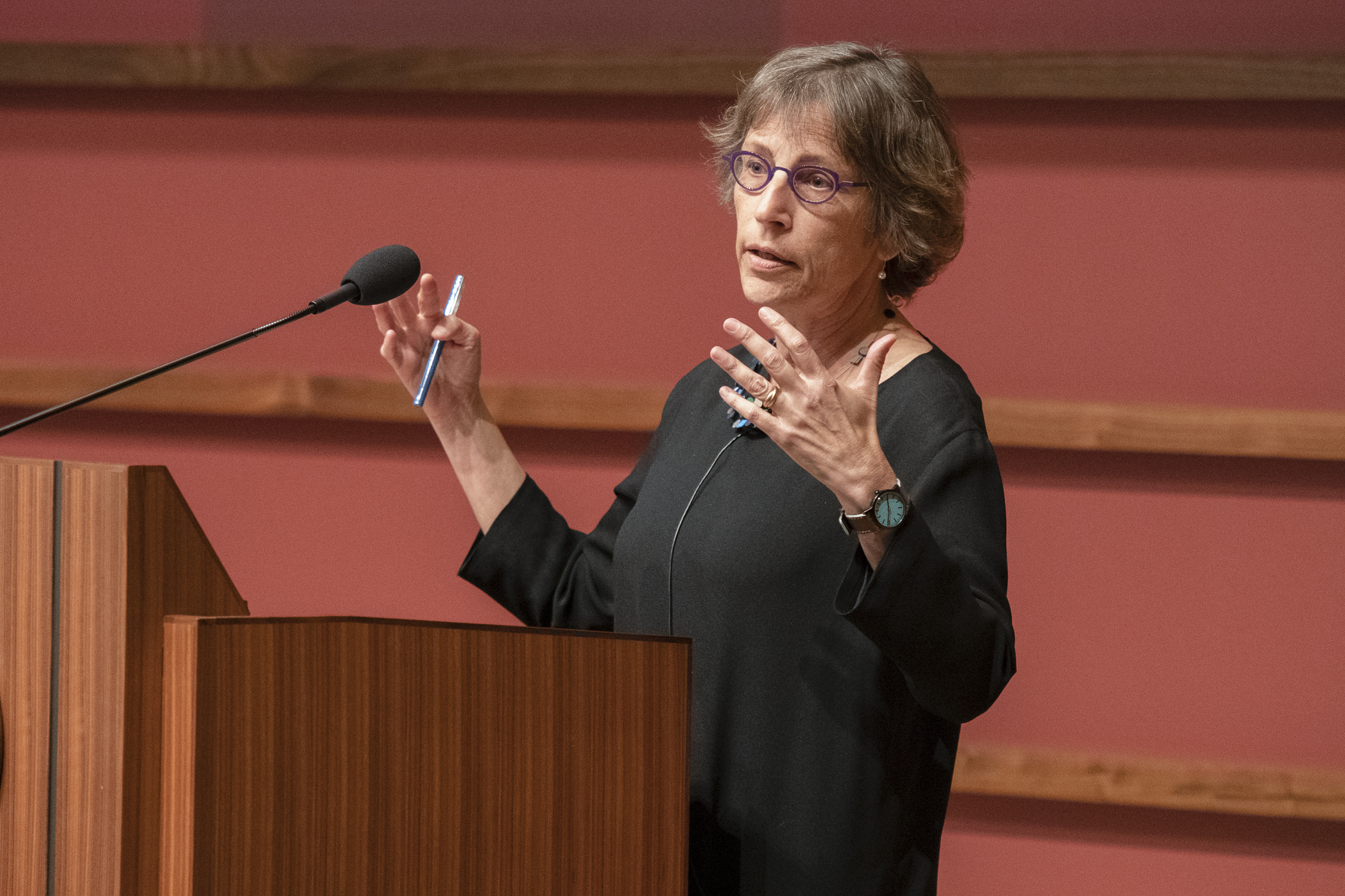Dean of the School of Humanities and Sciences Debra Satz urged academic departments to provide remote exams for students in isolation ahead of the final exam period during Thursday’s Faculty Senate meeting.
The meeting comes after Stanford reported 475 COVID-19 cases on campus on Tuesday. The University also announced on Friday that students with housing contracts ending in mid-June who test positive for COVID-19 between May 31 and move-out day are still expected to move out of their residence on time.
As of Tuesday, 305 students are isolating, and many of them may not test out in time to take final exams in person.
Some students in isolation are circulating emails on social media from instructors who will not allow students to take final exams online. In one email, an instructor reportedly gave the isolating student two options: have their grade calculated with a zero on the final exam or take an incomplete in the course until they could take the final exam next academic year. The Daily reached out to the University for comment regarding the authenticity of the emails.
The School of Humanities and Sciences and other University schools and departments have received emails from many students urging for accommodations given the ongoing pandemic, according to Satz.
“In some cases, students who cannot take an in-person exam find themselves in a position where they have to wait a full year in order to take a makeup exam in-person,” Satz said. As a result of expressed student concerns, Satz’ office has been meeting with faculty “to share the students’ concerns and to strongly encourage increased flexibility,” she said.
Satz has emailed the department chairs in the School of Humanities and Sciences, urging them to implement a remote exam option for students who are in isolation, according to her. Though some professors have already started designing remote exams, concerns remain about how remote exam options can preserve academic integrity, she added.
“If remote exams are offered and we do find increases in cheating in such contexts, cheating isn’t only an Honor Code violation affecting the cheater, it also affects fairness in grading,” she said.
The Board on Judicial Affairs’ current guidance on remote exams as it relates to the Honor Code states that “in-person exams may be administered simultaneously to students with a red Health Check badge using the same instructions as in-person exams,” meaning that exams provided to students with red Health Check badges could either be open-resource or closed-book depending on the instructions of the in-person exams.
The Faculty Senate also condemned the May 24 mass shooting of 19 children and two teachers at Robb Elementary School in Uvalde, Texas.
In light of the shooting, theater and performance studies professor Branislav Jakovljevic asked Marc Tessier-Lavigne if Stanford’s leadership planned to “reconsider its relationship” with “opponents of gun regulation” associated with the Hoover Institution.
“I personally abhor the horrific gun violence we’ve seen in our country, both, as you say in the recent tragic incidents over the past few weeks and even the past few days, but also in similar events that have occurred over the longer term,” Tessier-Lavigne said. “ Our own University policy is that guns are prohibited on campus. Beyond that, the University does not take an institutional position on the appropriate level or means of gun regulation.”
In other business, the Senate approved a proposal from the Committee on Undergraduate Standards and Policy to enable part-time enrollment status for coterm students, expand Cardinal Service and allow credit for military training and service work.
The Senate also moved to approve changes to the Research Policy Handbook after the revisions were tabled at an April meeting. Law professor and Acting Vice Provost for Research David Studdert and Associate Vice Provost for Research Policy and Integrity Cindy Kiel reviewed proposed changes to the fourth section of the handbook pertaining to conflicts of interest and commitment.
The proposed changes crystallize that commitments and activities undertaken by faculty and staff beyond the scope of their responsibilities at Stanford require prior institutional approval. The revisions come at the heels of high-profile arrests and political pressure targeting American academics with undisclosed conflicts involving foreign governments.
Although the motion passed, some members of the Faculty Senate expressed their concerns about the privacy and safety of faculty members under these new changes, questioning the need to expand pre-existing supervision of faculty on conflicts of interest.
“Why impose sweeping and ill-advised administrative remedies when judicious response to any individual problems has been and is available?” asked psychiatry and behavioral sciences professor David Spiegel, who served on the School of Medicine’s Conflict of Interest committee for a decade.
“This is disrespectful and demeaning to our faculty, devaluing our primary asset as an institution,” Spiegel added. “The existing policy, which is good, focused on the values it was trying to protect. What happened to those values?”
